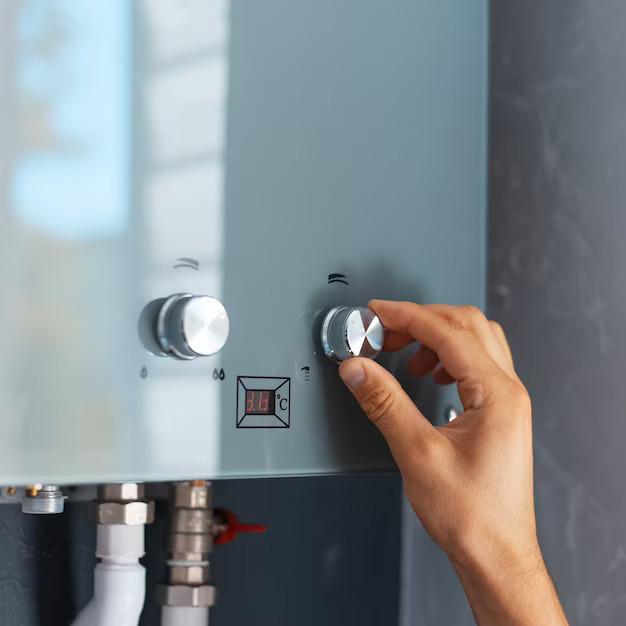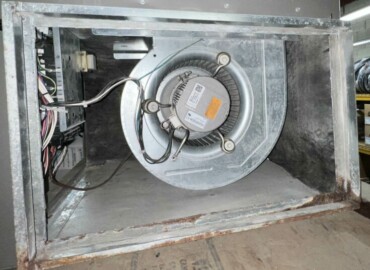Common Water Heater Noises and How To Solve Them
A consistent supply of warm water is a crucial aspect of daily life, contributing to comfort and hygiene. Your water heater is an essential appliance, quietly performing its critical task. But what if your water heater begins to make strange noises?
The sounds your water heater makes can provide valuable clues about its health. This article aims to guide you through the various types of noises your heater might produce, possible causes, and how to address them effectively.
Remember: Your safety is paramount. While some issues may be resolved through DIY methods, others may require professional intervention. Always exercise caution when dealing with appliances that involve electricity, gas, and hot water.
Common Water Heater Noises and How To Solve Them
The first step in troubleshooting your water heater is identifying the type of noise it’s producing. Here’s a quick rundown of the sounds you might encounter:
1. Water Heater Making Rumbling Noise
A rumbling noise usually indicates sediment buildup inside the tank. This is especially common if you live in areas with hard water. The sediment can create a range of issues, including reducing your heater’s efficiency.
How To Solve Rumbling Noise Coming From Water Heater?
Rumbling is typically due to sediment buildup. When the water in the tank heats and expands, it pushes through the sediment to the top, causing a rumbling sound. Regular maintenance, like flushing and draining the tank annually, can prevent sediment buildup.
2. Water Heater Making Popping Noise
Popping noises are typically due to the buildup of limescale and sediment. This buildup traps water, which, when heated, creates steam bubbles. When these bubbles burst, they create a popping sound.
How to Address Popping Noise Coming From Water Heater?
Popping sounds, like rumbling, are often caused by limescale and sediment buildup. A quick solution is using a descaling product to break down the limescale and minerals. Alternatively, flushing and draining the tank can remove any built-up sediment.
3. Water Heater Making Sizzling, Hissing, or Crackling Noise
These sounds are more common in electric water heaters and often indicate sediment buildup at the tank’s base. Sizzling sounds in a gas water heater can signal condensation dripping onto the burners.
How To Tackle Sizzling, Hissing, or Crackling Noise Coming From Water Heater?
These noises typically suggest sediment buildup at the tank’s base. Regularly flushing and draining the water heater can address this issue. If you hear sizzling sounds from a gas-powered water heater, contact a professional for an inspection.
4. Water Heater Making Ticking Noise
Ticking noises might be due to changes in water pressure, heat trap nipples, or loose pipe straps. While they’re usually harmless, it’s a good idea to get them checked out to prevent potential damage.
How To Fix Ticking Noises Coming From Water Heater?
Ticking sounds are usually harmless and can be due to changes in water pressure, heat trap nipples, or loose pipe straps. However, if the ticking sound is irritating, consider replacing the parts or adjusting the heat to reduce pipe expansion.
5. Water Heater Screeching, Screaming, or Singing
These high-pitched noises are often due to water flow restriction, especially when it’s significantly restricted through a valve.
How To Quiet Screeching or High-Pitched Noises Coming from Your Water Heater?
Screeching or high-pitched noises usually mean water flow is significantly restricted through a valve. If the source of the sound is a relief valve, immediately turn off the gas, electricity, and water in the tank and call a professional.
6. Water Heater Making Banging or Hammering Sound
Known as ‘water hammer,’ these sounds are caused by abrupt changes in water direction or pressure within your plumbing system.
How To Stop Banging or Hammering Sounds Coming From Your Water Heater?
Banging or hammering sounds can potentially burst pipes in your home. You may need a water hammer arrestor or pressure-reducing valve to address recurring issues.
How To Troubleshoot a Noisy Water Heater
If your water heater is making unusual noises, it’s important to troubleshoot the issue as soon as possible. Here’s a step-by-step guide to troubleshooting a noisy water heater:
- Identify the Noise: The first step in troubleshooting a noisy water heater is to identify the type of noise it’s making. Is it a popping or crackling noise? A humming or buzzing noise? A banging or knocking noise? Each type of noise can indicate a different issue, so it’s important to identify the noise before moving on to the next step.
- Check for Sediment Build-up: If your water heater is making a popping or crackling noise, it could be a sign of sediment build-up in the tank. To check for sediment build-up, you can drain a few gallons of water from the tank. If the water is cloudy or has a strange odor, it could be a sign of sediment build-up.
- Inspect the Heating Element: If your water heater is making a humming or buzzing noise, it could be a sign of a faulty heating element. To check the heating element, turn off the power to your water heater and remove the access panel. If the heating element is damaged or not functioning properly, it may need to be replaced.
- Inspect the Tank: If your water heater is making a banging or knocking noise, it could be a sign of a damaged tank. To inspect the tank, check for any visible signs of damage, such as cracks or leaks. If the tank is damaged, it may need to be replaced.
Maintenance Tips to Prevent Noisy Water Heaters
Preventive maintenance is key to avoiding noisy water heaters. Regularly draining and flushing the tank can help prevent sediment build-up, which is a common cause of water heater noises. Checking and replacing the anode rod every few years can also help prevent corrosion and extend the life of your water heater.
Additionally, having your water heater inspected by a professional at least once a year can help identify any potential issues early on, preventing major problems down the line.
When to Replace Your Noisy Water Heater
Sometimes, despite your best efforts, a water heater may simply be past its prime. If your water heater is more than 10 years old, constantly needs repairs, or is causing your energy bills to spike, it may be time to consider a replacement.
While replacing a water heater can be a significant investment, it can also offer numerous benefits, including improved energy efficiency, better performance, and less noise.
When to Call a Professional
While it’s good to know how to troubleshoot, some problems with a water heater should be dealt with exclusively by a professional. This includes annual maintenance tasks, dealing with very loud screeching sounds, or addressing a potential water pressure issue.
FAQ
Should I be worried about my water heater making a noise?
While some noises are harmless, others, like screaming or a high screeching sound, can be serious signs that need immediate plumber attention.
What does it sound like when your water heater is going out?
If you hear popping, banging, or rumbling, it can be a sign that your water heater is about to fail. A water heater's average lifespan is between eight and 12 years, depending on how well you maintain your tank.
How do you know if your water heater is about to burst?
Signs of an imminent tank rupture include water leaking from the pressure relief valve, loud popping sounds, brown water from the faucet, or a rotten egg smell near the water heater.




